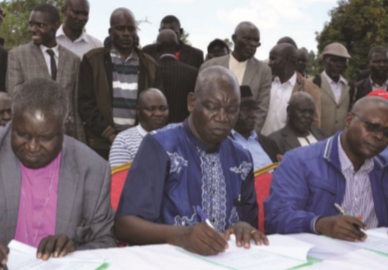Rivatex managing director Professor Thomas Kipkurgat (seated right), Tesoi North MP Mr Oku Kaunya (centre) and Bishop John Okude of ACK Katakwa diocese during the signing of an MOU on cotton production between Rivatex Company and farmers from Teso North. Titus Too, Standard

